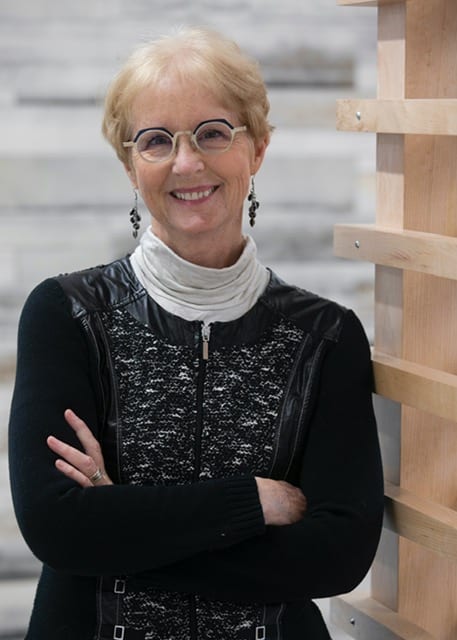
Bringing Ecology, Justice and Ethics into education, a conversation with Heather Eaton
Select Season
Listen to this episode: Duration: 48 min.
Quick Overview
In this conversation, Heather shares her lifelong commitment to environmental ethics and sustainability, inspired by her childhood on Lake Huron and her academic journey. Her involvement in the 1992 Earth Summit (UNCED) ignited her passion for the Earth Charter, a transformative document promoting ecological literacy and eco-justice, which she has championed ever since. In her teaching, Heather uses the Earth Charter to inspire students, encouraging them to connect its principles with local projects that foster practical action and hope. She emphasizes the Charter’s relevance in today’s fragmented, crisis-ridden world, highlighting its comprehensive vision of the Earth community, eco-justice, and nonviolence. Heather stresses the importance of ecological literacy as the foundation of peace, democracy, and sustainability, advocating for education to foster planetary consciousness. She also challenges the idea that environmental concerns are a luxury, asserting that neglecting ecological integrity deepens global crises. Discussing ecofeminism, Heather critiques the historical association of women with nature, emphasizing the need to dismantle patriarchal constructs and address systemic injustices. Her current research focuses on “integral ecology,” which aligns with the Earth Charter’s principles and unites diverse cultural perspectives to address global ecological challenges. Through her work, Heather continues to inspire new ways of thinking about environmental ethics and the critical role of education in shaping a sustainable and just future.
Questions and Topics Addressed in this Episode
- Given your involvement in the 1992 Earth Summit (UNCED) and your long-standing work on environmental ethics and sustainability, how do you perceive the evolution—or lack thereof—of humanity’s consciousness and actions over the past three decades?
- Could you share your journey with the Earth Charter, sustainability, and ethics? When did you first become involved, and what motivated you to engage with these issues?
- As a researcher, professor, and educator, how do you incorporate the Earth Charter into your work and the areas where you have influence? Could you share your approach and provide concrete examples to inspire others?
- When the Earth Charter was first envisioned over 30 years ago, the context and challenges were different. Now, after around 25 years of its existence, do you believe the Earth Charter remains relevant in today’s world? What are your thoughts on its applicability to contemporary issues? Have you encountered any skepticism or questions regarding its relevance in the current times?
- What, in your opinion, are the key ideas that make the Earth Charter unique, special, and valuable?
- The Earth Charter emphasizes earth ethics, the ethics of care, and expanding planetary consciousness. How do you think these principles can be integrated into education? In your view, how and why should we improve our efforts to foster the ethics of care, planetary consciousness, and earth ethics through educational initiatives?
- You mentioned that some people view environmental concerns as a luxury we cannot afford. How do you respond to that perspective?
- Could you share your thoughts on the intersection of the natural world, ethics, human well-being, and worldviews? Many people believe ethics lack practical relevance, so it would be valuable to hear your perspective on this. Could you also clarify how these concepts relate to worldviews? How are our worldviews shaped, and what are some of the different kinds of worldviews we might encounter?
- You have worked extensively on ecofeminism. Could you explain what ecofeminism means and share your thoughts on its significance? How do you see the relationship between ecofeminism, the current global challenges, and ecological worldviews?
- Could you explain what you mean by the “essentialist view”? What does this perspective entail, and how does it relate to the discussions we are having about ecology, ethics, and worldviews?
- Could you elaborate on how your work connects environmental issues with broader social issues such as poverty and human rights? How do you see these issues as intertwined, and what strategies or approaches do you find most effective in addressing them together?
- Could you share the central theme of your current research? How do you envision this work impacting the broader fields of environmental ethics and eco-theology?
Heather Eaton

Bringing Ecology, Justice and Ethics into education
Who is Heather Eaton?
Heather Eaton is a Professor in the Conflict Studies program at Saint Paul University, Ottawa, Canada, with a Ph.D. in Ecology, Feminism, and Theology from the University of Saint Michael’s College/Toronto School of Theology. Her interdisciplinary work explores the intersections of religion, ecology, gender, and peace studies, with a focus on nonviolence and animal rights. She has been actively involved in inter-religious responses to the ecological crisis, feminist and liberation theologies, and the relationship between religion and science. Dr. Eaton has authored and edited several influential works, including The Intellectual Journey of Thomas Berry: Imagining the Earth Community and Introducing Ecofeminist Theologies, as well as numerous academic articles. A past president of the Canadian Theological Society, she serves on the editorial board of Worldviews: Global Religions, Environment, and Culture and the steering committee for Religion and Ecology at the American Academy of Religion. Her recent research focuses on the intersection of religion, science, and ecology, alongside innovative approaches to grassroots peacebuilding.
This podcast is developed by Earth Charter International as part of our work as UNESCO Chair on Education for Sustainable Development with the Earth Charter.




